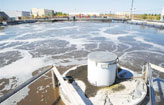Technology
China, Japan co-op in E-waste recycling plant
Updated: 2011-05-31 10:01
(Xinhua)
HANGZHOU -- An electronic waste recycling company, jointly funded by Japan's Panasonic, Sumitomo, DOWA Group and China's Hangzhou Dadi Environmental Protection Co Ltd, will be built in east China's Zhejiang province, local authorities said Monday.
Located in Tonglu county under the jurisdiction of Hangzhou city, and built at a cost of 121.7 million yuan ($18.8 million), the Panasonic Dadi Dowa Summit Recycling Co Ltd will focus on the collection and recycling of discarded home appliances, including television sets, refrigerators, washing machines, air conditioners and computers.
The construction of the plant will begin in June, and the project is expected to be able to recycle 500,000 to 1 million discarded home appliances per year after its completion in January 2012, said Katsuyuki Mikawa with Panasonic, who will be the general manager of the new company.
| ||||
Both Panasonic and Dadi hold 35 percent of the shares of the company, While DOWA and Sumitomo hold 18 percent and 12 percent of the shares of the firm, respectively.
E-waste refers to electronic products nearing the end of their "useful life." Computers, televisions, VCRs, stereos, copiers and fax machines are common electronic products. Some E-waste contains toxic materials which can cause severe environmental pollution if not properly handled. At the same time, the e-waste can be turned into useful materials after refurbishment and extraction.
Electronic waste is becoming an increasingly pressing problem in China with the surging of the sales of electronics. It is estimated that the country will be producing more than 6 million tonnes of electronic discards in 2020.
The central government has been encouraging recycling and centralized treatment of E-waste. A regulation issued by the State Council, China's Cabinet, has been in place since January 1 to ensure better management of E-waste recycling.
E-paper

Tapping into the future
Foreign companies are investing in China's water industry as many predict a growing profit margin.
Preview of the coming issue
Headhunters ride on growth
Commercial property rides wave
Specials

Cuisine central
London's Chinatown is helping diners appreciate full palate of Chinese food

Tying the knot
Danish couple's high-end macrame export business takes off in the mountains of Yunnan.

Truly a super woman
Li Yuchun first came to prominence in 2005 as the Super Girl winner, and since then has become an international star.




